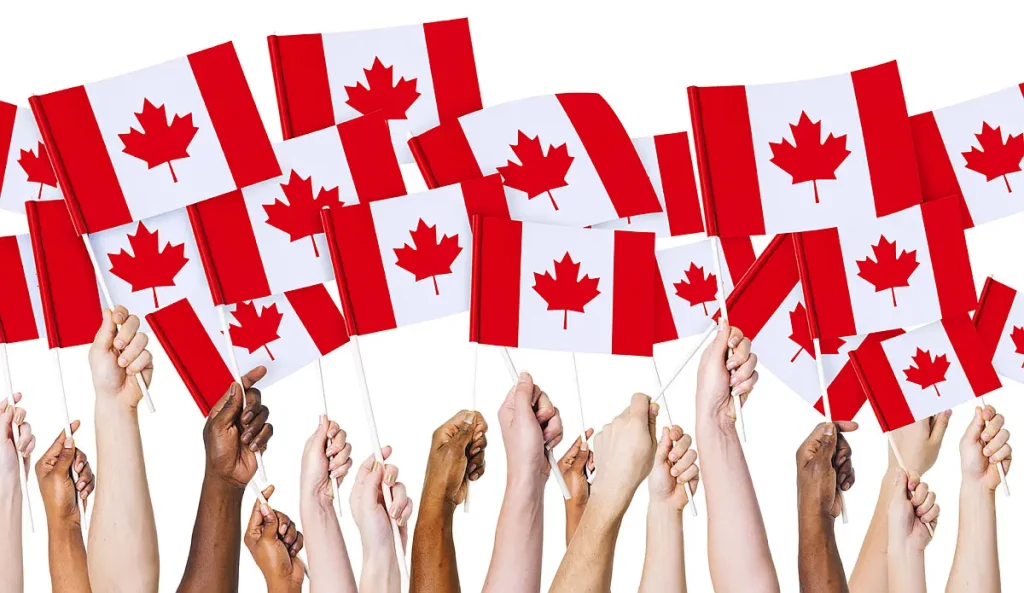Multiculturalism is a characteristic often used to describe Canadian society. The term is meant to capture the diversity of cultures that exist within the country and the ways in which they interact with one another. While multiculturalism is generally seen as a positive force, it can also create some challenges. For instance, some people may feel like they have to choose between their cultural identity and being wholly Canadian. This blog post will explore some of the benefits and challenges of multiculturalism in Canada. We will also examine how different groups overcome challenges and create a more inclusive society.
Multiculturalism is often used to describe Canadian society. The ethnicity and nationality of Canada are represented in approximately three-fifths of the population. Nationality refers to a “belonging” or sense of self-identity when asked, “What are you?” Ethnicity is a bit more challenging to define. It refers to a group of people living as a minority within a larger culture. In 1971, Canada became the first country in the world to adopt a policy of multiculturalism. This policy affirmed Canada’s recognition and value of its rich ethnic diversity. In 1997, the Department of Canadian Heritage restructured and renewed the multiculturalistic program. Three main goals offer a focus for the program: identity, civic participation, and social justice. By recognizing and celebrating Canada’s multiculturalism, it is hoped that common goals of belonging, sharing and social justice will occur.
What is multiculturalism?
Multiculturalism is the presence of multiple cultures in a society. The term is often used to describe Canada, where a significant number of people are from different cultural backgrounds.

Multiculturalism can be seen as a positive or negative phenomenon. On the one hand, it can be seen as a strength of Canadian society, as it allows for a greater understanding and tolerance of different cultures. On the other hand, some people may see multiculturalism as a source of tension and conflict, as different cultural groups may have difficulty integrating into Canadian society.
Overall, multiculturalism is an integral part of Canadian identity and culture. It makes Canada unique and allows for a rich tapestry of cultural experiences.
History of multiculturalism in Canada
The history of multiculturalism in Canada can be traced back to the early 1800s when the British government began encouraging immigration from non-British countries in order to populate the West. This policy continued until the early 1900s, when the Immigration Act was passed, limiting certain immigrants. Despite these restrictions, Canada remained an attractive destination for those seeking a better life, and by the 1950s, nearly one-fifth of the population was made up of immigrants.
The term “multiculturalism” has been used in Canada to describe the country’s diverse religious and cultural influences. Canada has experienced different waves of immigration, and by the early 21st century, people from outside British and French heritage composed most of the population.
In 1971, then Prime Minister Pierre Trudeau introduced the Official Languages Act, which made French and English the official languages of Canada. This was followed by the Multiculturalism Act in 1988, which recognized and affirmed the rights of all Canadian citizens to preserve and promote their cultural heritage.
In the 21st century, Canada is widely considered a progressive and multicultural country. However, this wasn’t always the case. In the past, European immigrants speaking other languages were often treated with suspicion, and Jewish Canadians were primarily targeted in Quebec due to anti-semitism.
Asians faced legal obstacles limiting immigration during the 1800s and early 1900s. An example of this was the increase in Indian/South Asian immigration to Canada between 1897 and 1907 when the federal government passed the Continuous journey regulation in 1908 to prevent Asian immigrants from entering Canada unless they arrived from their birth country. Additionally, specific ethnic groups that did immigrate during this time faced barriers within Canada preventing full participation in political and social matters, including equal pay and the right to vote.
Minorities of African or Asian origin were not considered acceptable in Canada before the Second World War. Japanese Canadians were interned and had their property confiscated during the war. Since the 1960s, Canada has emphasized equality and inclusiveness for all people.
Today, Canada is one of the most multicultural countries in the world, with over 200 different ethnic origins represented among its population.
The benefits of living in a multicultural society
There are many benefits to living in a multicultural society. One of the most obvious is the exposure to different cultures. This can be experienced in many ways, such as through food, music, language, art, and religion.
Another benefit is that it can promote tolerance and understanding between people of different backgrounds. In a multicultural society, people are more likely to interact with those from other cultures on a regular basis. This can help break down barriers and prejudices that exist between different groups.
It can also lead to a more dynamic and interesting society. With so many different cultures represented, there are bound to be more activities and experiences available. This can make life more exciting and enriching for everyone involved.
Finally, living in a multicultural society can help provide a sense of belonging for all members. Regardless of one’s background, everyone can feel like they have a place in such a diverse community.
The challenges of living in a multicultural society
Multiculturalism is often seen as a positive characteristic of Canadian society. However, living in a multicultural society can also be challenging. One of the challenges is finding common ground with people from different cultures can be difficult. This can make it challenging to build relationships and understand each other.
Another challenge is that some people may feel like they don’t belong in a multicultural society. They may feel they have to give up their culture to fit in, which can be tough.
Overall, living in a multicultural society can be both rewarding and challenging. It’s important to remember that we all have something to offer and can learn from each other if we’re open to it.
How to celebrate and embrace multiculturalism in Canada
In Canada, multiculturalism is celebrated and embraced in many ways. One of the most obvious ways is through food. There are restaurants and grocery stores that offer a variety of cuisines from all over the world. This is a great way to try new things and experience other cultures.
Another way to celebrate and embrace multiculturalism in Canada is through events and festivals. There are often cultural festivals happening in different cities across the country. These provide an excellent opportunity to learn about other cultures and meet new people.
One final way to celebrate multiculturalism in Canada is simply by being open-minded and respectful toward others. By embracing diversity, we can create a society that is more understanding and accepting of others.
Did you know?
Canada is a country with a diverse and multicultural society. There are many cultures present in Canada, representing a variety of ethnicities, languages, traditions, and ways of life. The Indigenous peoples of Canada have a rich and diverse cultural heritage that stretches back thousands of years. In addition to the Indigenous cultures of Canada, there are also many immigrant cultures present in the country, representing the many different countries and regions from which people have migrated to Canada. Some of the cultural groups that are well-represented in Canada include English, French, Irish, Scottish, German, Italian, Chinese, South Asian, East Asian, Southeast Asian, African, Caribbean, and Latin American cultures, among many others. Overall, Canada is a country with a rich and diverse cultural landscape, and people from many different cultural backgrounds call it home.
Conclusion
As a result, Canada is often thought of as a “mosaic” society, where people of different cultures live and interact with one another. This makes Canada an exciting and unique place to live, and its citizens are proud of their country’s multiculturalism.
